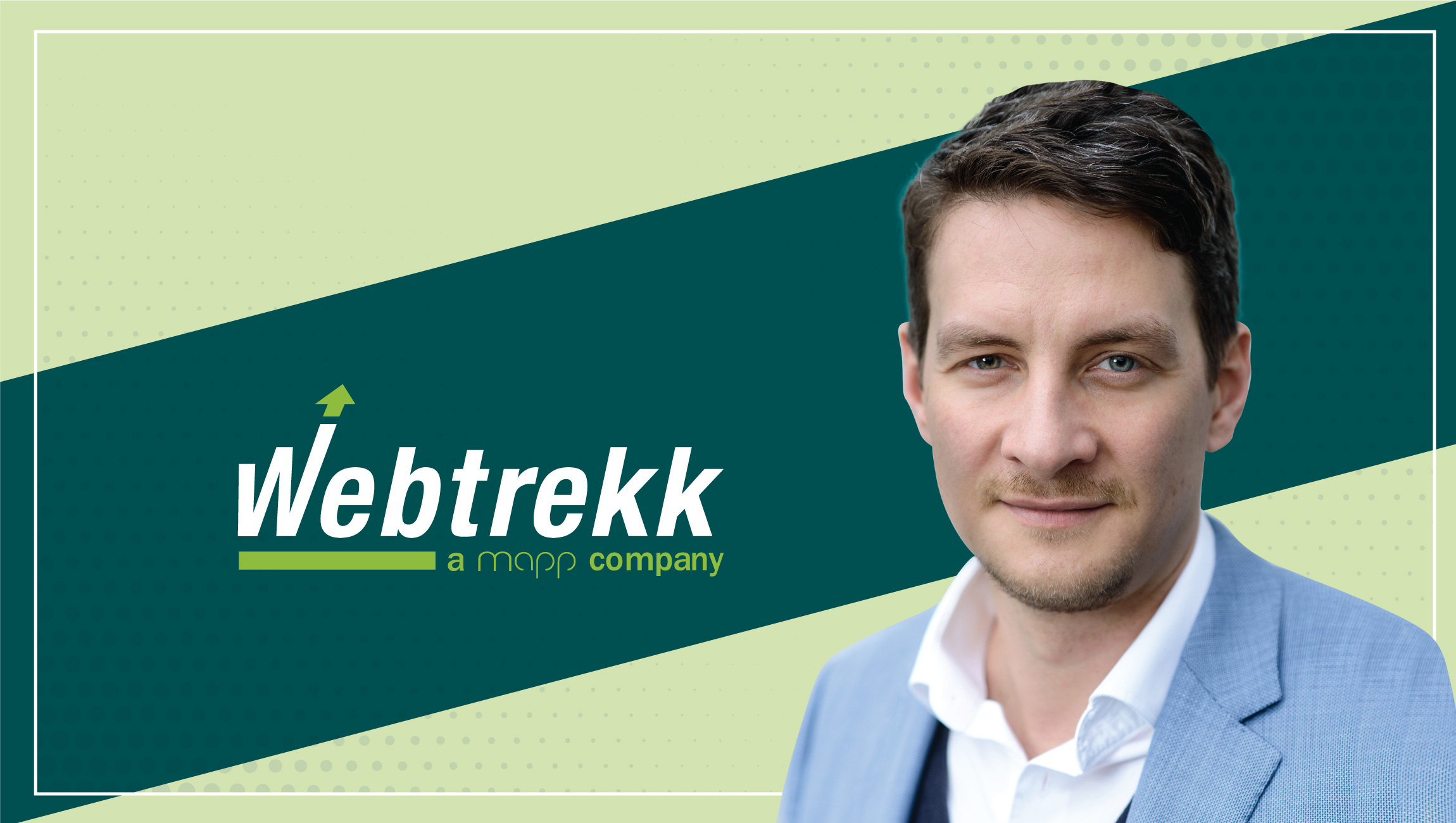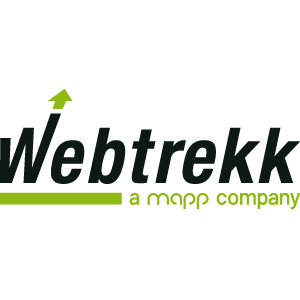Tell us about your role and journey into Marketing Technology. And what inspired you to start Webtrekk?
I initially gained my first professional experience in the banking and consulting sector, before I founded an edutainment website for children in the year 2000. But as a business economist my biggest interest always lay in the field of economy trends. With the increasing national and international digital transformation in the early 2000s it soon became clear to me that online data will become irrevocably important to companies all over the world. Me and my business partner Norman Wahnschaff asked ourselves what information is the most valuable for companies and how could it be collected while still ensuring the compliance of privacy regulations. This is how Webtrekk was born.
How does Webtrekk fit into a modern CMO’s technology stack?
In the near future, users of Webtrekk will profit even more, as Mapp, a leading provider of cloud-based digital marketing solutions, is to acquire Webtrekk, Closing of the transaction, which is subject to applicable regulatory clearances and other customary closing conditions, is expected to occur in the second quarter of 2019. Mapp and Webtrekk will consolidate their offerings into one fully-integrated product. The combination of Mapp’s deep customer acquisition and engagement capabilities with Webtrekk’s customer intelligence will create a next-generation digital marketing platform capable of delivering end-to-end customer experiences powered by advanced analytics and personalization. The integrated platform will enable marketers to pool customer data centrally, analyze customer behavior with machine learning, and engage customers with the right content across all channels.
What does your Ideal Customer Profile look like?
It does not matter if it is a small start-up, a SME or a big corporate group – every business collects valuable data. So for us, an ideal customer profile is not bound to a certain company structure but to a mindset. The better our customers know their aim and the questions they want to have answered through their data, the better they can use our solutions to their benefit. Of course, we have skilled consultants who can help defining and applying these questions.
Which industries have been the fastest to adopt Customer Analytics platforms?
The e-commerce sector was one of the first industries to use customer analytics platforms. But also the finance and media & publishing sector adopted it quickly. Nowadays nearly every industry uses some kind of Marketing Analytics solution.
Tell us how Webtrekk maintains GDPR compliance, and still manages to deliver on Customer Experience?
What distinguishes our customer analytics platform from others is that since the very beginning we are specialized on first party data and data ownership. Till the enactment of the GDPR many online marketers used to rely on third party data. But due to the opt-in guidelines of the new privacy regulations, the activation of adblockers and browsers such as Safari, which do not allow third-party cookies in their standard settings, a point will be reached in the near future at which 30 to 50 percent of all third-party data will be lost. This has an enormous impact on KPIs. GDPR implicitly advocates the use of own data. With first party data such challenges are excluded: The data comes directly from the own website and app users. Online marketers can analyze exactly how users interact with the content and the products offered. The collection and analysis of first party data guarantees GDPR compliance – no opt-in is required due to the justified interest in data collection for static reasons. And besides, the data quality and therefore the quality of the customer experience is better with first party data than it would be based on data of third parties.
What are your predictions on the most impactful disruptions in Customer Analytics? How can Marketing teams better benefit from choosing Customer Data solutions?
Currently, automation and AI are real buzzwords in online marketing. But only a minority, an estimated 5 to 10 percent of companies, have already completed the automation process and apply the techniques profitably. After all, automation only makes sense if valid key figures are being drawn in the background that allow conclusions about the incoming data quality. So there is still great potential in this field.
Above that, real-time infrastructures for data evaluation are a major trend. More and more companies want all their data to be made available in real time so that they can react quickly and efficiently to the market. This goes along with the optimization of business intelligence and data quality management; it is a real booster for the digital transformation of companies.
In the future, it will become increasingly important in digital marketing not only to build up and expand one’s own know-how within the company, but also to make first party data usable for marketing purposes. With my own “walled garden” I encounter the big marketing channels at eye level. In this way, I achieve a higher customer lifetime value with existing customers. This is necessary because new customer acquisition is becoming more and more expensive, even in the digital channels that were previously cheap.
I also expect further international court rulings to be issued that will further limit the use of third-party data. For example, it will certainly be further discussed whether the opt-in that Google obtains may continue to apply across all platform products or whether an agreement will soon have to be obtained for each and every one of them. In this respect, I expect setbacks for those technologies that do not yet have any opt-ins.
Which Marketing and Sales Automation tools and technologies do you currently use in your current roles?
We rely on our own Marketing Automation tool for in-depth and automatically generated insights and actions using granular data to generate personal, impactful recommendations. With this we can interact with visitors on different channels – from onsite suggestions to emails to external advertisements.
How do you prepare for the Data Science Economy? What is the route to optimized Digital Transformation for any business today?
As digital transformation progresses, the availability of data – about internal processes or the company’s own customers – continues to increase. In order to prepare for and master in the Data Science Economy it is crucial that companies collect data (ideally in real-time) about anything relevant for their daily business. It starts at production capacities, their website and app traffic as well as customer service performance figures. When they ensure high data quality, this data can give great insights and reveal correlations that might otherwise be overlooked. So data management is key. With great business intelligence comes the ability to activate your data interdivisional. Relating to digital marketing this means that user profiles and segments based on customer lifetime value, conversion probability, engagement etc. can be created. This way complex data can be turned into personalized, automated marketing campaigns.
What startups in the technology industry are you watching keenly right now?
Currently I love to look at the fintech startup scene. Especially the competition of challenger banks like N26 and Revolut is fascinating. They are all very innovative and have raised large rounds of capital to compete for new customers. They’ve created apps that millions of their customers love using. Personally, I am also curious how Beeskin, the startup my wife, will develop. They produce natural, sustainable and reusable alternative to plastic cling foil.
How do you prepare for an AI-centric world as a Business leader?
AI’s capabilities have expanded significantly — and will continue to do so at exponential rates. I strive to introduce AI in ways that are effective and sustainable for our customers as well as for us internally. It is already an integral part of our product offer. Internally it is an imperative to invest time, energy, and resources to learn about the implications and opportunities of AI.
How do you inspire your people to work with technology?
Technology should facilitate your daily work, so people should be happy to use technology in the first place. Unfortunately, technology is not always easy to use, but it is getting better from day to day.
One word that best describes how you work.
Strategic
What apps/software/tools can’t you live without?
Smartphone
What’s your smartest work related shortcut or productivity hack?
I usually try not to have a scrollbar in my inbox at the end of the day.
What are you currently reading? (What do you read, and how do you consume information?)
“Factfulness” by Hans Rosling
What’s the best advice you’ve ever received?
To read “The hard thing about hard things” by Ben Horowitz.
Something you do better than others – the secret of your success?
I try to focus on effectivity more than efficiency. The bigger picture to me is most important.
Tag the one person (or more) in the industry whose answers to these questions you would love to read:
Mirko Caspar from Mister Spex
Thank you, Christian! That was fun and hope to see you back on MarTech Series soon.
Christian Sauer studied at the University of St. Gallen and gained experience in banking and consulting in Mexico, USA and Switzerland. In 2000 he founded KinderCampus AG together with partners, where he was a member of the board until 2002. In 2004, Christian Sauer founded Webtrekk with a view to the digital transformation, progressing both nationally and internationally. With over 130 employees and offices in Italy, Spain and the Netherlands, Webtrekk is one of the world’s leading customer analytics companies.
In 2018 Christian Sauer also launched the non-profit platform ilovemy.eu, which supports the production of pro-European videos for social media channels.
Webtrekk is one of the leading premium customer analytics platforms in Europe. Webtrekk enables companies to understand and analyze the behavior of their website and app users across devices and to apply these insights to targeted marketing measures.
With its best-of-breed approach, the independent tech company offers well-founded analytics expertise, while its tried and tested first party data offering helps customers achieve maximum data depth.
Webtrekk guarantees highest data protection standards and is TUEV-certified. Data is stored on servers in the European Union.
The MTS Martech Interview Series is a fun Q&A style chat which we really enjoy doing with martech leaders. With inspiration from Lifehacker’s How I work interviews, the MarTech Series Interviews follows a two part format On Marketing Technology, and This Is How I Work. The format was chosen because when we decided to start an interview series with the biggest and brightest minds in martech – we wanted to get insight into two areas … one – their ideas on marketing tech and two – insights into the philosophy and methods that make these leaders tick.












